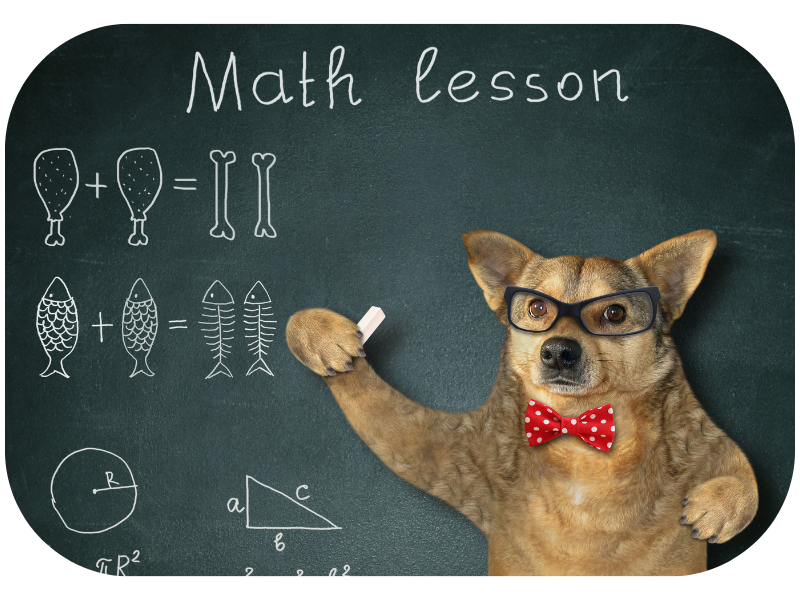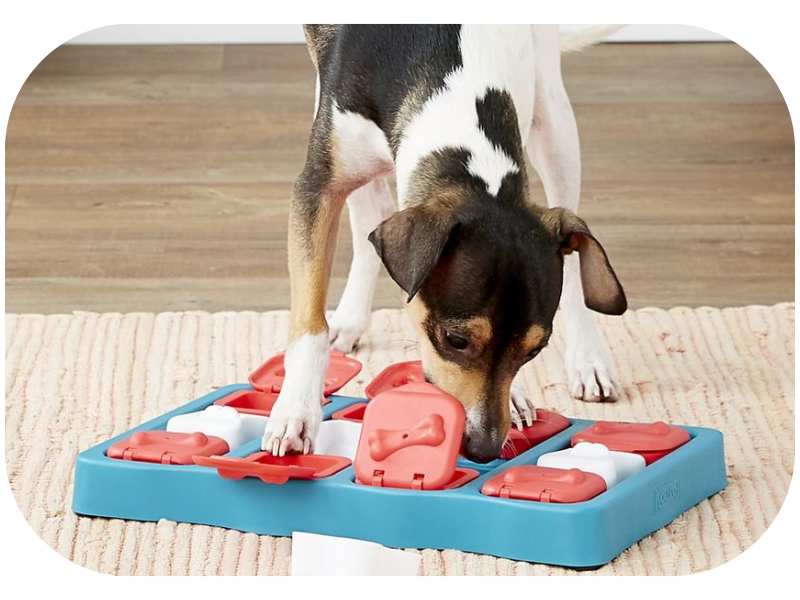No Products in the Cart
Secret Veterinary Tips to Help Your Dog Lose Weight While Managing Their Appetite

Weight loss is an uphill battle for everyone involved, but it's one worth fighting for if you want your dog to live a long healthy life. Once you've determined that your dog is overweight, it's time to establish a plan to help them shred these unwanted and unhealthy pounds!
Why should you help your dog lose weight?
Being overweight is the cause of many chronic issues. For example, the extra weight carried by your dog's joints will quicken joint cartilage degradation, leading to early osteoarthritis. Also, fat cells are a source of pro-inflammatory molecules that worsens osteoarthritis and affects other organs. Indeed fat accumulated in organs will prevent their good functioning by infiltrating them (liver) or putting pressure on them (heart).
If your dog is overweight or obese, they more likely to suffer from several serious, life-altering diseases:
- Significantly reduced life expectancy
- Heart and respiratory problems
- Diabetes
- Decreased immunity and therefore increased risk of infections and other diseases
- Osteoarticular conditions such as osteoarthritis
- Cardiovascular disease
- Urinary calcium oxalate stones
Our dedicated article gives you the top 10 diseases linked to obesity.
You can see many other alarming signs of sickness in obese dogs. For example, they are likely to be lethargic, lack motivation and energy, and refuse to exert themselves in exercise, play, or activity. In addition, they are often sad and left out of group play and adventures. If you don't wish this to happen to your dog, work on helping them maintain a healthy weight. But please keep going because it often takes time and patience to attain your pup's ideal weight!
Key takeaway: While a puffy pup can seem adorable and make your heart melt, the excess fat they carry around will severely damage their joints and lead to long-term debilitating diseases. So you want to control your dog's weight so they can live long and happy lives!
How long will it take for my dog to lose weight?
It depends, but you can set up a healthy and sustainable objective of losing about 1.5% per week of your dog's extra weight. So, for example, if your dog has 20% excess weight (BDS= 6 or 7, meaning you can't easily count their ribs), it would take about three and a half months to reach the optimal weight.
Math: 20%/1.5%=13.33 weeks=3.3 months

Just like human weight loss, you don't want to drop too much weight too fast because this will not be sustainable in the long term. It's always a good idea to speak with a veterinary nutritionist and create a meal plan for your dog's weight loss journey!
Also Read: Best Glucosamine for Dogs in 2024 - A Vet’s Honest Opinion
Key takeaway: it takes time and patience to help your dog shred the extra weight. You don't want to go too fast, too soon, and see their health decline. It's essential to help them get used to their new diet to sustain it.
How to successfully manage your dog's diet?
The first thing to consider is consistency. You have to stick with small habits to get significant results! That is the power of compounding. We recommend that you start small and remain consistent. Seek the advice of a veterinary professional to set realistic goals. It's also crucial to remember that you'll have a higher likelihood of success if you and your dog don't suffer through the process.

The second essential item is follow-up. Weighing your dog weekly is vital to see your progress, week after week! Also, write it down and share it with the people who love and care for your dog. Finally, celebrate together the tiny milestones of your pup's weight loss journey!
One of the most challenging parts of getting your dog to their ideal weight is feeling like you are not feeding them enough, especially when they give you a begging look.
Key takeaway: the journey to your dog's ideal weight loss is long, and you must celebrate the little victories. This will allow you to keep going until your reach your goal!
Also Read: UC-II® Supplement for Dogs
What can you do if your dog is still hungry?
We know this might be the most challenging part for your and your dog. So follow these 3 steps to make it easier.
1) Use an interactive feeder.
Interactive/slow feeders and games are an excellent way to make them slow down their food intake. Indeed, satiety comes with time, and this extra time you get with a slow feeder should make your dog feel less hungry once they finish their meal.

2) Use the small-step theory again.
Suppose you've looked up your dog's ideal weight and determined the perfect daily food portion to give them. Then, you might be left feeling like the change is too drastic and you are feeding them too little! But don't worry! We have a trick to help ease your dog into their new food portions.
Imagine that your dog has a Body Score Condition of 8 or higher. In that case, they need to lose between 30 and 60% of their current weight. So you probably need to cut your dog's meal sizes in half. We recommend aiming for an intermediate decrease in food of 15% per week over a few weeks. We like this approach for two reasons:
- First, spreading the reduction in food can help your dog's stomach get used to having less food, so your dog won't feel as hungry.
- Secondly, the road to the ideal weight will seem shorter and more accessible to you and your dog.
3) Use the secret veterinary ingredient!
If you want to go further or feel like the two previous ideas don't meet your needs, we will share our secret sauce: it's made with zucchini!

Indeed, zucchinis are a high-fiber vegetable that contains lots of water. Therefore they are low in calories. In addition, it will bring satiety to your dog's stomach, which means the sensation of a full belly. Add cooked ( don't add oil, instead, cook in chicken broth) or raw zucchini to your dog's meals to increase the amount they eat and give them the sensation of a fuller stomach.
Key takeaway: To help your dog feel fuller and longer, you can slow them down when they eat or add zucchini to their meals. Also, set realistic and attainable goals so that the big-picture victory seems more accessible!
Also Read: Chondroitin for Dogs - 5 Things You Need To Know - Vet’s Expert Advice
Is there a reason not to put an obese pet on a diet?
In certain circumstances, it's best to avoid a calorie-restrictive diet for your dog. For example, suppose your dog (or cat) has a lifelong chronic illness such as cancer, renal disease, diabetes, or cardiac malfunction. In that case, you want to feed them a special diet. Also, pregnant or nursing pets should not have a calorie-restrictive diet. These animals will likely need more nutrients and energy to remain healthy, so treating their obesity will wait until their underlying conditions have resolved.
Also Read: Is Turmeric (Curcumin) Helping Dogs With Osteoarthritis?
Consult your veterinarian before doing anything that could significantly affect your pet's health. Your doctor will identify their dietary requirements in the previous examples and inform you of the necessary changes, if applicable.
Key takeaway: there are specific instances where your pet's weight is not the most crucial health issue you should address. In these cases, it's always best to speak with a veterinarian to understand the best treatment plan for your pet.
Weight management is one of the most challenging items for pet parents, and it will take love, care, and patience to get your dog from being overweight to fit. However, it's the best thing you can do for them if you want them to live a long, healthy life by your side.
















Leave a comment